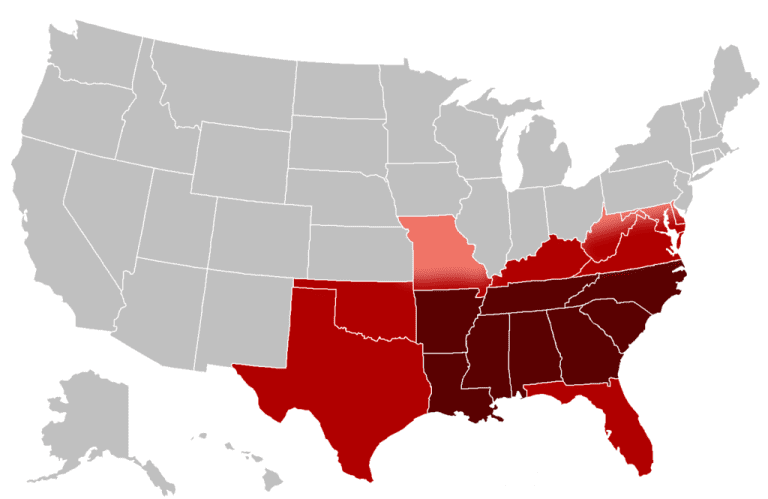My fellow Patheos blogger Daniel K. Williams, a history professor at Western Georgia who blogs at Anxious Bench, has made a fascinating discovery.
In his post The White Southern Protestants Who No Longer Attend Church, he notes that church attendance is down everywhere, including the so-called “Bible Belt” of the South. In the northeast, the decline–which he attributes in part to the sex scandals in the Catholic church–has been associated with a rise in political liberalism. Is that happening in the South, as well? Are Southerners who have given up on evangelical churches becoming more progressive?
Using data from the 2018 General Social Survey (GSS) and sorting the information according to race, region, and church attendance, he found that the 45% of white Southerners who no longer attend church have pretty much the same political and culture war beliefs that their church going neighbors do.
They overwhelmingly supported Donald Trump, voting for him over Hillary Clinton by a 2 to 1 margin. They are all for law and order, oppose affirmative action, distrust the government, distrust the press, and support the military. They are even pro-life.
In short, by these and other measures, white Southerners who don’t go to church have the same politics as those who do go to church.
They even have many of the same religious beliefs. The non-churchgoers still identify as Protestant Christians and 89% believe the Bible is the inspired Word of God.
There are, however, some notable differences. Non-church goers are fine with homosexuality. And 68% believe that premarital sex between a man and a woman is “not wrong at all.” Only 21% of church goers believe that, with half believing that having sex outside of marriage is “always wrong.”
Unlike church goers in the South, the dechurched strongly support the legalization of marijuana. Prof. Williams also found that white Southerners who don’t go to church are less trusting of other people and more cynical of institutions than churchgoers.














